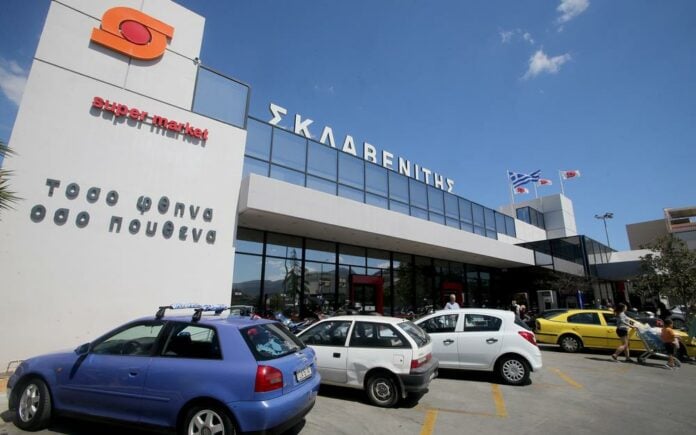By D. Alexaki
A new successor company for the temporarily creditor-protected Marinopoulos super market group — one owned and managed entirely by rival Sklavenitis — will arise in December, according to the most optimistic scenario, or as late as February 2017 if obstacles arise.
The late February 2017 date, in fact, is cited in a MoU between the two super market operators and all four of Greece’s systemic banks – which have extended a 350-million-euro credit line to finance the buyout.
The plan to transfer all of Marinopoulos’ shares into a new company controlled by Sklavenitis, along with a major restructuring of debts owed by the former, is seen as a last-ditch effort to keep Marinopoulos’ workforce employed and stores open.
Sources told “N” this week that a brief continuance will be requested from a relevant court in Athens in eight days, when a hearing is scheduled to rule on petitions for Marinopoulos’ protection under article 99 of the Greek bankruptcy code. A temporary court order currently protects the super market chain from creditors’ demands.
The same sources emphasized that no official contacts have taken place between Marinopoulos’ wholesale suppliers, in order to seek their acquiescence over the restructuring plan, and especially the provisions that affect their balance sheets.
A preliminary plan called for a “haircut” of up to 50 percent in some cases, in tandem with the restocking of Marinopoulos’ stores, many of which now display empty shelves.
“Official contacts with market representatives will commence once a final reorganization plan is locked in place,” a source told “N”.
Marinopoulos employs more than 11,000 people, but owes hundreds of millions of euros to suppliers and other third parties. Its closure and permanent bankruptcy would have had extremely negative repercussions for Greece’s already recession-battered retail sector.
As “N” has previously reported, the lending agreement extends over 10 years and is linked with a 1.5-percent interest rate on the 350-million-euro multi-bank loan. Additionally, lender banks will retain a right to whatever dividends arise from a prospective securitization of shares, with a 25-percent option in the new company that will be established by Sklavenitis and other partners to absorb 100 percent of Marinopoulos’ current shares.
The former will have 100 percent control of the new company and sink 125 million euros of its own capital in the deal.














